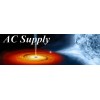As a science teacher, you want your students to feel interested and excited about your lesson plans. Nothing is more painful than seeing bored and disinterested students when presenting your latest material. Fortunately, there are steps you can take to liven up your science presentations. Here are five essential features of an engaging science lesson plan.
Introduction That Sparks Students’ Curiosity
Creating a successful science lesson plan involves unique educational content and exciting presentation skills. To achieve this, the first essential feature you will need is an introduction that instantly captures your students’ curiosity.
You can do this by presenting a surprising fact, introducing a thought-provoking scenario, or reading a captivating story related to the lesson’s theme. The goal is to ignite a burning curiosity that encourages students to delve deeper into the subject.
Materials That Explain the Scientific Concepts
Next, your lesson plan materials are crucial in explaining scientific concepts. For example, classroom rocket kits can transform abstract physics concepts about propulsion and aerodynamics into a tangible and fun experience for students. The right materials make complex theories more accessible and relatable, fostering a deeper understanding of the subject.
Direct Instruction From the Teacher
The third key feature of an engaging science lesson plan is direct instruction from the teacher. Direct instruction involves guiding students through new material and breaking down complex ideas into digestible parts.
Through clear explanations, demonstrations, and engaging dialogue, the teacher becomes the conductor of the learning experience. This direct interaction ensures that students are not passive recipients of information but active participants in their learning journey.
Student Exploration
Encouraging student exploration is another vital part of making your science lessons engaging. Student exploration lets students apply what they have learned in a hands-on manner. Whether conducting experiments, participating in group projects, or exploring scientific phenomena through interactive activities, this part of your lesson plan is where curiosity meets application. It empowers students to foster critical thinking and problem-solving skills through experimentation and discovery.
Final Assessment of Scientific Knowledge
An effective lesson plan culminates in a final assessment of scientific knowledge. This assessment doesn’t necessarily mean a traditional test; it can be a project presentation, a lab report, or a reflective essay.
The assessment should gauge the retention of scientific information and the ability to apply important concepts in different contexts. It’s an opportunity for your students to reflect on the learning journey and evaluate their understanding of the subject matter.
An engaging science lesson plan can transform your classroom into a laboratory of inquiry and discovery. AC Supply provides educational materials and supplies that allow students to study and experience scientific topics. Our inventory will help you spark curiosity in your students and contribute to an exciting learning environment.


